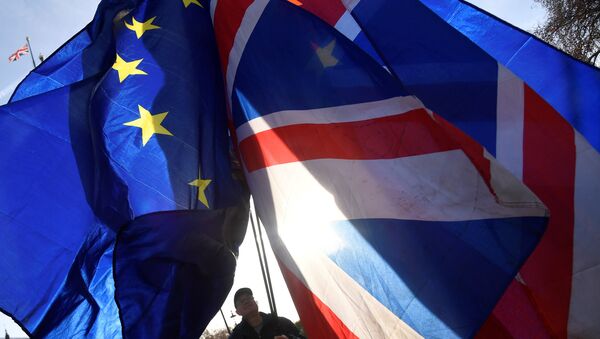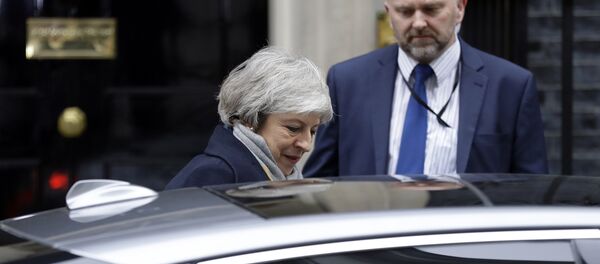Moreover, after the Commons vote took place on Tuesday, the UK could enter a much uncharted political and constitutional territory, with no one seeming to know where this will all end up.
Sputnik has discussed the issue with Christopher Kirkland, Lecturer in Politics at York St John University.
Sputnik: Labour's Jo Stevens said that the Tories are “using the no deal threat to scare MPs into backing the prime minister’s bad deal,” and underlined that Theresa May is “trying to hold the people of this country to ransom in order to stay in power.” Could this be true? Will reality match the rhetoric?
Now, it's quite clear in the Brexit negotiations that it was Parliament that was the sovereign institution; — now it's going to regain control. But May's created this personality around Brexit, and created tensions between the government and Parliament throughout this process.
And this is the latest in this line, saying to MPs, "It's my deal, it's this deal or we're not going to have a Brexit." So I think there is some truth in that critique of what May's doing at the moment.
Sputnik: Moreover, as the Commons vote will take place this evening, the UK will enter a much uncharted political and constitutional territory, with no one seeming to know where this will all end up. Will the current, indefinite state of Brexit affairs be clearer by the end of the day?
I think then the discourses and the different options are still in play. The government will have three sitting days — so effectively five days until next Monday — to present a 'Plan B' to Parliament. And I don't think we're going to see much development in the meantime, before that comes back.
There has been talk of Corbyn and the Labour Party calling for a vote of no confidence in the government, and if this does go ahead, and Labour's wins, then the government will have to resign and we'll have to have a general election.
However we shouldn't extrapolate from the fact that, if May loses tonight, she will automatically lose that vote of no confidence. I think we saw with the vote of no confidence in her from the Conservative Party, there are a lot of Conservative MPs willing to back her; the DUP would probably favour a Conservative-led government, rather than a Labour-led government. I don't think there's this automatic pathology that necessarily would entail from that option. I think the far more likely outcome is — and we'll have to wait — we'll have this ambiguity again for almost another week until the government comes back to Parliament, next Monday, to offer its so-called Plan B.
So in that sense, we are coming closer to an exit strategy with the EU. Now, however, that's not the exit strategy the majority of MPs would want or would vote for, so the onus is really upon those MPs to negotiate or to find a deal that is acceptable to prevent that no deal, and that needs to be done: Parliament needs to act between now and the 29th of March in order to delay the Brexit day, in order to delay crashing out of the EU without a deal — because the default option is we are going to crash out without a deal unless something can be agreed.
Sputnik: And what do you think of a no deal perspective?
Christopher Kirkland: A no deal is the worst possible option out of the options that are still available to us at this time.
Views and opinions expressed in this article are those of Christopher Kirkland and do not necessarily reflect those of Sputnik.




